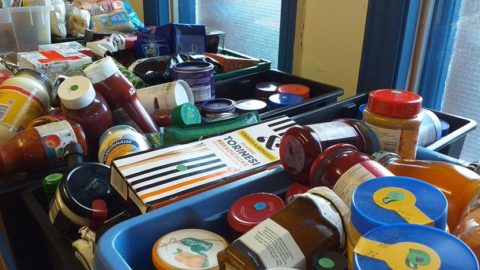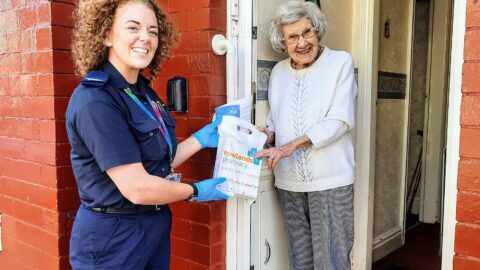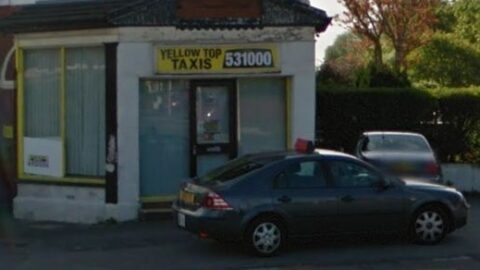The government has revealed the list of the ‘key workers’ in Southport.
They include doctors, nurses, midwives and social workers; but also those working in shops and supermarkets to provide vital supplies of food, and those who deliver food around the country.
While schools in Southport are shutting today, some schools will remain open to teach a limited number of the children of those key workers.
But the government has stressed that the fewer children there are in school the better their ability will be to tackle the spread of Coronavirus and Covid-19.
A Government spokesman said: “As a country, we all need to do what we can to reduce the spread of the COVID-19 virus.
Scarisbrick Hotel closed for months during virus outbreak
“That is why the government has given clear guidance on self-isolation, household isolation and social distancing.
“And the most recent scientific advice on how to further limit the spread of COVID-19 is clear. If children can stay safely at home, they should, to limit the chance of the virus spreading.
That is why the government has asked parents to keep their children at home, wherever possible, and asked schools to remain open only for those children who absolutely need to attend.
“It is important to underline that schools, colleges and other educational establishments remain safe places for children. But the fewer children making the journey to school, and the fewer children in educational settings, the lower the risk that the virus can spread and infect vulnerable individuals in wider society.
Coronavirus Business Rates and Grant support for local firms revealed
Schools are, therefore, being asked to continue to provide care for a limited number of children – children who are vulnerable and children whose parents are critical to the Covid-19 response and cannot be safely cared for at home.”
Vulnerable children include children who are supported by social care, those with safeguarding and welfare needs, including child in need plans, on child protection plans, ‘looked after’ children, young carers, disabled children and those with education, health and care (EHC) plans.
If your work is critical to the COVID-19 response, or you work in one of the critical sectors listed below, and you cannot keep your child safe at home then your children will be prioritised for education provision:
Health and social care
This includes but is not limited to doctors, nurses, midwives, paramedics, social workers, care workers, and other frontline health and social care staff including volunteers; the support and specialist staff required to maintain the UK’s health and social care sector; those working as part of the health and social care supply chain, including producers and distributers of medicines and medical and personal protective equipment.
Education and childcare
This includes nursery and teaching staff, social workers and those specialist education professionals who must remain active during the COVID-19 response to deliver this approach.
Key public services
This includes those essential to the running of the justice system, religious staff, charities and workers delivering key frontline services, those responsible for the management of the deceased, and journalists and broadcasters who are providing public service broadcasting.
Local and national government
This only includes those administrative occupations essential to the effective delivery of the COVID-19 response or delivering essential public services such as the payment of benefits, including in government agencies and arms length bodies.
Food and other necessary goods
This includes those involved in food production, processing, distribution, sale and delivery as well as those essential to the provision of other key goods (for example hygienic and veterinary medicines).
Public safety and national security
This includes police and support staff, Ministry of Defence civilians, contractor and armed forces personnel (those critical to the delivery of key defence and national security outputs and essential to the response to the COVID-19 pandemic), fire and rescue service employees (including support staff), National Crime Agency staff, those maintaining border security, prison and probation staff and other national security roles, including those overseas.
Transport
This includes those who will keep the air, water, road and rail passenger and freight transport modes operating during the COVID-19 response, including those working on transport systems through which supply chains pass.
Utilities, communication and financial services
This includes staff needed for essential financial services provision (including but not limited to workers in banks, building societies and financial market infrastructure), the oil, gas, electricity and water sectors (including sewerage), information technology and data infrastructure sector and primary industry supplies to continue during the COVID-19 response, as well as key staff working in the civil nuclear, chemicals, telecommunications (including but not limited to network operations, field engineering, call centre staff, IT and data infrastructure, 999 and 111 critical services), postal services and delivery, payments providers and waste disposal sectors.
If workers think they fall within the critical categories above they should confirm with their employer that, based on their business continuity arrangements, their specific role is necessary for the continuation of this essential public service.
If your school is closed then please contact your local authority, who will seek to redirect you to a local school in your area that your child, or children, can attend.
Usdaw General Secretary Paddy Lillis said: “The publication of the key worker list is welcome, allowing the identified workers full access to any skeleton childcare provisions. It is vital that these workers are able to continue delivering crucial services without suffering any financial detriment.
“The guidance says that every child who can be safely cared for at home should be, so we would ask employers to show some flexibility and support our members’ individual circumstances, while maintaining these essential services.









